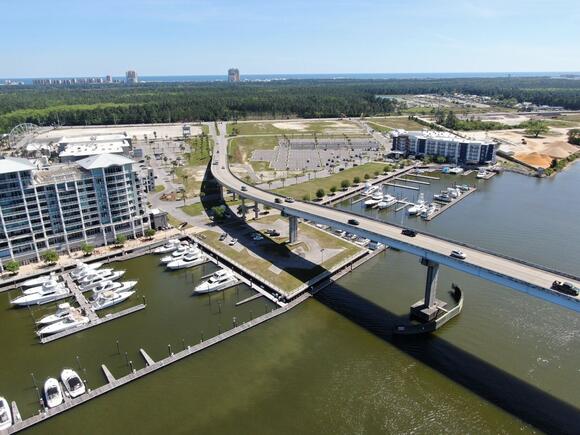Written by Lee Sentell, Alabama Tourism and Travel Director
When Governor Kay Ivey recently announced that Alabama had agreed to purchase the Folly Beach Express Bridge and eliminate its tolls, you could hear the collective cheers from Alabamians across the state. it was.
Orange Beach Mayor Tony Kennon said the announcement is “good for everyone: good for residents, good for businesses, good for visitors.”
His sentiment captures the widespread support for this deal, as it is certainly good for everyone. The leaders who made this happen: Governor Ivey, local officials, the Alabama Department of Transportation (ALDOT), and the Baldwin County Bridge Company should be commended.
Alabamians and visitors alike will see immediate benefits once the agreement is signed in May.
A new free route to Alabama’s beaches has clear benefits. For more than 20 years, toll bridges have provided a vital link to our beach communities. More than 5.6 million vehicles used the toll bridge in 2023 alone.
More than 8 million tourists visit Baldwin County each year. They make up nearly one-third of all visitors to Alabama. The majority (over 6 million people) visit Baldwin County to experience its pristine beaches.
We encourage these visitors to “leave only footprints,” but we want them to leave money behind. And they do. Beach visitors inject about $8 billion into the economy and support 65,000 tourism-related jobs across the state.
Of course, this is especially important for Baldwin County. Tourism is the county’s largest industry, and tax revenue from tourism accounts for the majority of both Gulf Shores and Orange Beach’s budgets.
But the economic benefits extend far beyond one county. A portion of each community’s lodging tax and retail sales tax supports the state’s Education Trust Fund, meaning schools in every community in Alabama benefit from beach tourism.
The agreement would not only eliminate the $5 toll to cross the bridge, but also ease the area’s long-standing traffic congestion problem.
When John Cooper was appointed ALDOT director in 2011, he held a series of meetings in Baldwin County to identify regional priorities. Reducing traffic congestion along Highway 59 was identified as the region’s top transportation need. This congestion causes long delays for residents and visitors and impedes emergency response, hospital access, and hurricane evacuation.
The Folly Beach Express is designed to provide quick access to private toll bridges and ease congestion on Highway 59. However, many travelers took the Express to get closer to the beach, but avoided the bridge because they didn’t want to go there. Pay the toll. As a result, the toll bridge was no solution to the congestion on Route 59, and it only worsened it.
Now that tolls have been eliminated, the agreement means the bridge can finally help alleviate traffic problems on Highway 59. This will greatly improve traffic flow, making movement within the area smoother and easier.
Finally, the agreement includes additional road improvements. As part of the agreement, ALDOT will widen Canal Road and improve the intersection of State Routes 161 and 180. In addition, construction continues on a second toll-free bridge over the Intracoastal Waterway. When the bridge is completed in his 2026, it will further reduce traffic congestion on Highway 59, improve access to emergency services and make evacuations safer and faster.
It takes a team to achieve such a positive result and this agreement is certainly proof of that. The team, led by Governor Ivey and including local leaders, ALDOT Director John Cooper, and bridge companies, reached a landmark agreement that benefits all Alabamans.
By promoting access to our beaches, helping people save money and invest in local infrastructure, we boost Alabama’s economy, preserve jobs, and win big for our schools and communities. brings. Good luck, team!
###

